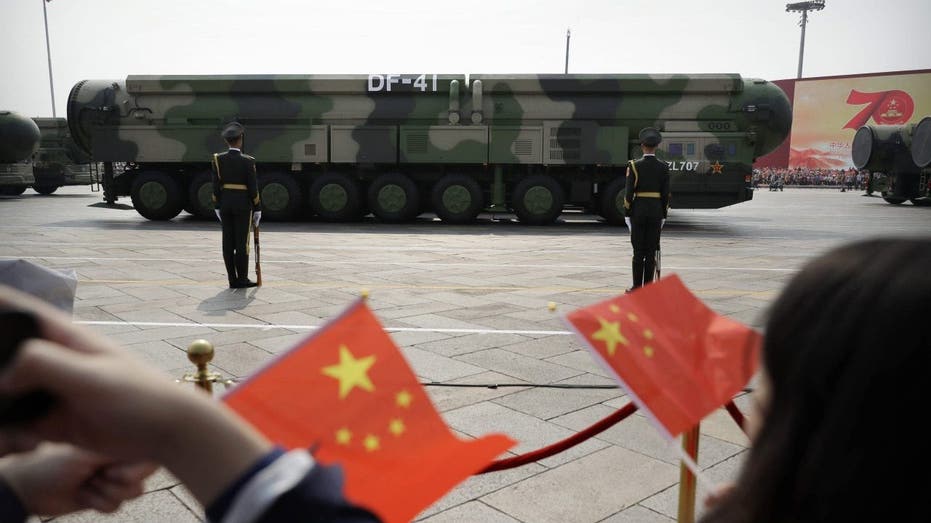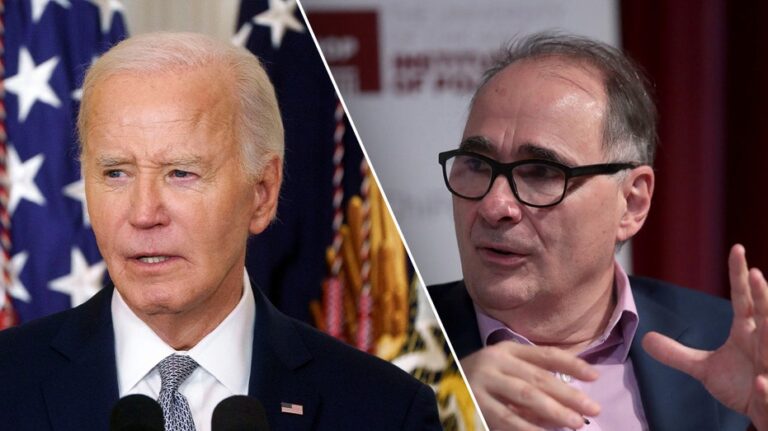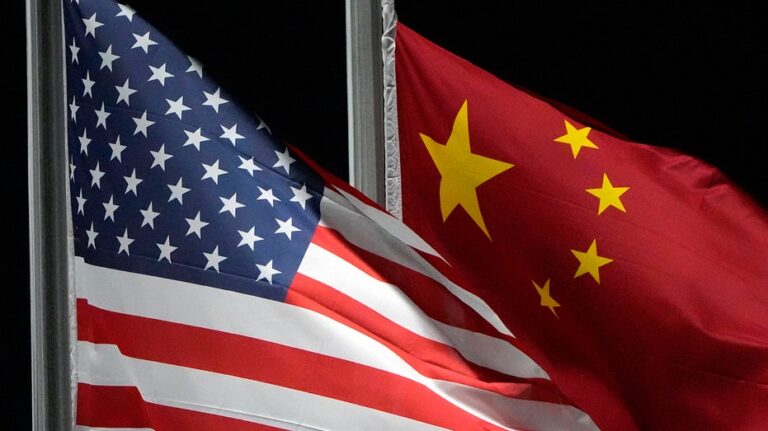
Amid compounding concerns about an increasingly threatening China, many Americans wonder how our government left them so catastrophically vulnerable to a pharmaceutical embargo by the Chinese Communist Party (CCP) or how they’ve remained so defenseless against the greatest theft of personal information and intellectual property in history. They question how it’s possible that the world’s greatest military and our Homeland Security officials can leave our electrical grid so defenseless against an electro-magnetic pulse, a method of attack that could fry most electrical circuits in the nation, erase nearly all data on every hard drive, and cause the loss of an estimated 100 million lives.
The answer lies in the failure of the U.S. government to develop an integrated national security strategy. Integrated strategy uses a “whole-of-government” approach that leverages all the instruments of power, including material instruments such as military strength, trade and finance, and non-material instruments such as public diplomacy, humanitarian aid and counter-influence.
Each of these is like an instrument in an orchestra. And the players of individual instruments must realize this and not play their trumpet when the symphony prescribes the harp. This requires each player to be an integrated strategic thinker who coordinates with the other instruments. And the composers and conductors should know what all the instruments are.
FBI, CISA SAY CHINESE HACKERS BREACHED MULTIPLE US TELECOM PROVIDERS IN TARGETED ATTACK
Unfortunately, the federal government rarely has a coherent strategy, and leaders are often ignorant of which instruments of power to use and when, especially those not commonly used like cultural intelligence and offensive deception operations. There are, thankfully, exceptions. The National Security Council has only occasionally developed such a strategy. The Pentagon has done so, but is restricted to mobilizing weapons, materiel and manpower. Virtually every other cabinet-level department neglects and underemphasizes integrated strategy.
In the 1980s, the U.S. military faced a crisis of bureaucratic Balkanization that made America weaker. In 1986, the Goldwater-Nichols Act ended this by compelling the armed forces branches to become strategically integrated, overcoming interservice rivalry and lack of effective coordination. Similar legislation is needed today to ensure civilian agencies coordinate with one another and with the Pentagon. Only then will all federal agencies work in a synchronized fashion that makes them greater than the sum of their parts, enabling the U.S. to defend the nation and project power more effectively across the globe.
It’s been more than two decades since President George W. Bush declared that we are in a “war of ideas” against radical Islamism. But there’s not a significant sphere of consequence where America has successfully won the war of ideas against violent jihadists, in part because America never fully committed to ideological warfare as a form of radicalization prevention.
CLICK HERE FOR MORE FOX NEWS OPINION
Authoritarian Russia remains undaunted in its global pursuits. And the CCP is using its massive economic, propaganda and political warfare capabilities to gain ever greater global influence. All have made Americans – and our global interests – less secure. This is largely due to government agencies not investing the time and resources to develop the “warriors of ideas” and practitioners of other neglected arts capable of securing the nation.
Some so-called experts say that after we exhaust economic sanctions to punish adversaries, there are no further options short of using force. But this is wrong. There are many unused non-kinetic instruments of conflict. American officials must consider using them before they decide to use force to defend our vital interests. This is what we did to help bring down the Soviet empire without war.
That’s why the incoming Trump administration should enact a civilian version of the Goldwater-Nichols Act to ensure greater coordination across government and make the necessary investments in neglected entities like the U.S. Agency for Global Media, which controls the Voice of America, Radio Free Asia and several other freedom radios, the State Department’s Global Engagement Center and the CIA’s covert information operations. We have plenty of instruments at our disposal, ranging from international broadcasting and political warfare to psychological strategy, if only we’d use them.
When asked how the U.S. should respond to China’s massive, years-long information warfare and strategic influence campaign against American interests, a recent Commander of the Indo-Pacific Command replied, “We don’t do that.”
He was right. We don’t – but we should.
Amid compounding concerns about an increasingly threatening China, many Americans wonder how our government left them so catastrophically vulnerable to a pharmaceutical embargo by the Chinese Communist Party (CCP) or how they’ve remained so defenseless against the greatest theft of personal information and intellectual property in history. They question how it’s possible that the world’s greatest military and our Homeland Security officials can leave our electrical grid so defenseless against an electro-magnetic pulse, a method of attack that could fry most electrical circuits in the nation, erase nearly all data on every hard drive, and cause the loss of an estimated 100 million lives.
The answer lies in the failure of the U.S. government to develop an integrated national security strategy. Integrated strategy uses a “whole-of-government” approach that leverages all the instruments of power, including material instruments such as military strength, trade and finance, and non-material instruments such as public diplomacy, humanitarian aid and counter-influence.
Each of these is like an instrument in an orchestra. And the players of individual instruments must realize this and not play their trumpet when the symphony prescribes the harp. This requires each player to be an integrated strategic thinker who coordinates with the other instruments. And the composers and conductors should know what all the instruments are.
FBI, CISA SAY CHINESE HACKERS BREACHED MULTIPLE US TELECOM PROVIDERS IN TARGETED ATTACK
Unfortunately, the federal government rarely has a coherent strategy, and leaders are often ignorant of which instruments of power to use and when, especially those not commonly used like cultural intelligence and offensive deception operations. There are, thankfully, exceptions. The National Security Council has only occasionally developed such a strategy. The Pentagon has done so, but is restricted to mobilizing weapons, materiel and manpower. Virtually every other cabinet-level department neglects and underemphasizes integrated strategy.
In the 1980s, the U.S. military faced a crisis of bureaucratic Balkanization that made America weaker. In 1986, the Goldwater-Nichols Act ended this by compelling the armed forces branches to become strategically integrated, overcoming interservice rivalry and lack of effective coordination. Similar legislation is needed today to ensure civilian agencies coordinate with one another and with the Pentagon. Only then will all federal agencies work in a synchronized fashion that makes them greater than the sum of their parts, enabling the U.S. to defend the nation and project power more effectively across the globe.
It’s been more than two decades since President George W. Bush declared that we are in a “war of ideas” against radical Islamism. But there’s not a significant sphere of consequence where America has successfully won the war of ideas against violent jihadists, in part because America never fully committed to ideological warfare as a form of radicalization prevention.
CLICK HERE FOR MORE FOX NEWS OPINION
Authoritarian Russia remains undaunted in its global pursuits. And the CCP is using its massive economic, propaganda and political warfare capabilities to gain ever greater global influence. All have made Americans – and our global interests – less secure. This is largely due to government agencies not investing the time and resources to develop the “warriors of ideas” and practitioners of other neglected arts capable of securing the nation.
Some so-called experts say that after we exhaust economic sanctions to punish adversaries, there are no further options short of using force. But this is wrong. There are many unused non-kinetic instruments of conflict. American officials must consider using them before they decide to use force to defend our vital interests. This is what we did to help bring down the Soviet empire without war.
That’s why the incoming Trump administration should enact a civilian version of the Goldwater-Nichols Act to ensure greater coordination across government and make the necessary investments in neglected entities like the U.S. Agency for Global Media, which controls the Voice of America, Radio Free Asia and several other freedom radios, the State Department’s Global Engagement Center and the CIA’s covert information operations. We have plenty of instruments at our disposal, ranging from international broadcasting and political warfare to psychological strategy, if only we’d use them.
When asked how the U.S. should respond to China’s massive, years-long information warfare and strategic influence campaign against American interests, a recent Commander of the Indo-Pacific Command replied, “We don’t do that.”
He was right. We don’t – but we should.






